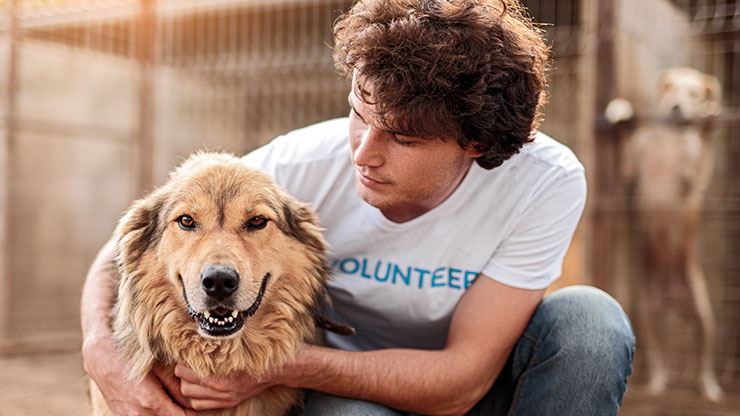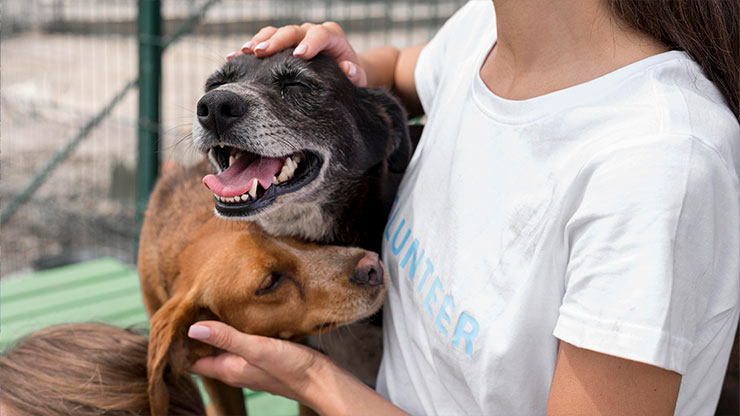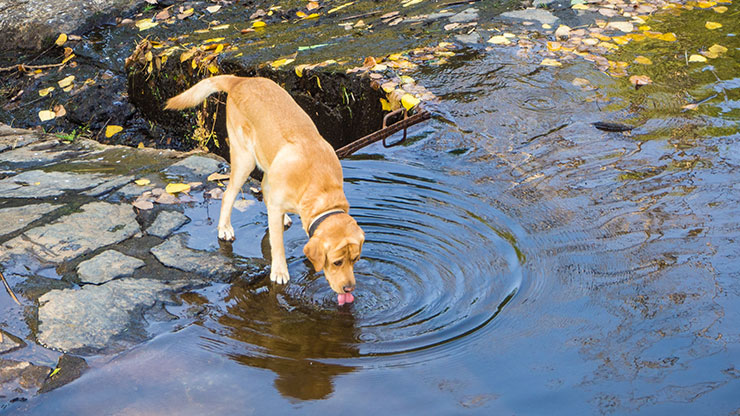
The Life-Changing Impact of Volunteerism
The Gift of Connection: Animals and Humans
Domestic animals, like dogs, have a unique way of connecting with humans. They provide us with a sense of companionship, love, and responsibility. But what happens when we flip the narrative? What happens when we become the givers, assisting domestic and wild animals who may be in need?
Sometimes called ‘animal volunteering,’ volunteerism with animals opens doors to many incredibly enriching experiences. Simply put, when volunteers come together to help, they can significantly impact our non-human friends and those who sacrifice their time and effort to make the animal kingdom slightly better.
The Mutually Beneficial Bond
When we think about volunteering with animals, we often first consider the benefits for the animals – and rightly so. Animals in shelters, sanctuaries, and rehabilitation centers worldwide need care, attention, and love. Volunteer efforts can significantly improve the quality of life for these creatures, providing them with the nurturing environment necessary for healing and growth. However, this is only one side of the coin. The volunteers often report personal growth and positive life changes due to these interactions.
Enhancing Personal Well-being
Volunteering offers an array of mental and emotional benefits. Interacting with animals has been shown to reduce stress, improve mood, and even lower blood pressure. Moreover, nurturing another being can foster a sense of purpose and fulfillment, boosting overall well-being.
The therapeutic effects of animal interactions are well-documented. Dogs or cats can offer unconditional love and acceptance, creating a sense of connection and alleviating loneliness or isolation. The presence of animals can release endorphins and oxytocin, often referred to as "feel-good" hormones, which promote a sense of happiness. For individuals dealing with stress or anxiety, the soothing presence of animals can provide a calming effect and serve as a welcome distraction from life's challenges. Over the past few years, it has been discovered that more people are adopting and owning dogs just for this reason!
Additionally, nurturing and caring as a volunteer can foster a sense of purpose and fulfillment. Taking responsibility for the well-being of another living being and providing them with love, care, and attention can be deeply rewarding. This sense of purpose can boost self-esteem and self-worth as volunteers witness their positive impact on animals' lives. It can also create a sense of structure and routine, providing a meaningful focus and helping individuals develop a sense of responsibility and empathy.

Cultivating Compassion and Empathy
Working closely with animals also develops traits like empathy and compassion. Understanding and responding to an animal's needs, especially those that have experienced trauma or neglect, can enhance emotional intelligence. This newfound empathy can extend beyond your volunteer hours, influencing other areas of your life and improving interpersonal relationships.
Building Community Through Fundraising
In addition to the direct benefits of working with animals, volunteering often involves fundraising efforts to support the animal organization. This could be anything from hosting a charity run, setting up an online donation campaign, or crafting Giving Tuesday emails to send to potential donors.
For example, a Giving Tuesday email could read: "Join us this Giving Tuesday in making a difference in the lives of our furry friends! Your generous donation will go directly towards food, medical care, and enrichment activities for the animals in our care. Together, we can give these animals the love and care they deserve."
The Ripple Effect: Spreading Awareness
By engaging in animal volunteerism, you also become an advocate for animal welfare. Your work continues beyond taking care of animals. It continues every time you share your experiences, educating others about the importance of animal welfare and inspiring them to contribute.

Conclusion: The Far-Reaching Impact of Animal Volunteerism
Volunteering with animals presents a unique opportunity to make a life-changing impact — for the animals you serve and yourself. It's a journey of personal growth, compassion, and community engagement, all while making a tangible difference. Every effort contributes to a more significant cause. It's about creating a world where humans and animals thrive together.
There are many ways people can volunteer and get involved. Here is a list of several possibilities:
- Local Animal Shelters: Many local animal shelters welcome volunteers to help with various tasks, including feeding the animals, cleaning their living spaces, walking dogs, or spending time with the animals to socialize them.
- Wildlife Rehabilitation Centers: These organizations often need to help care for injured, sick, or orphaned animals. This could involve feeding, cleaning, or providing medical care under the supervision of the center's staff.
- Foster a Pet: Many animal rescue organizations need foster homes to care for animals before adoption. This can be a more time-intensive commitment but an enriching experience.
- Fundraising: If you cannot physically volunteer, you can still help by organizing or participating in fundraising activities for animal shelters, wildlife conservation groups, or other animal-related nonprofits.
- Service and Therapy Animal Training: Organizations that train service or therapy animals often need volunteers to help with the basic training and socialization of these animals.
- National Parks and Reserves: These sites often have programs where volunteers can help maintain trails, educate visitors about wildlife, or help monitor and protect local animal populations.
Remember that every action, no matter how small, helps. Volunteering in a capacity that fits your skills and interests and that you find fulfilling is essential. Volunteering should be a rewarding experience for you and the animals you're helping. Because, after all, one helping hand (or paw) can make a huge difference.










